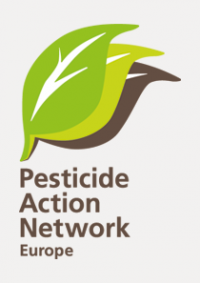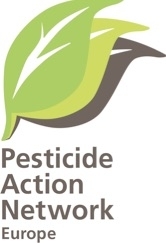Reports
Forbidden fruit: The dramatic rise in dangerous pesticides found on fruits and vegetables sold in Europe and evidence that governments are failing their legal obligations
European citizens have been exposed to a dramatic rise in the frequency and intensity of residues of the most toxic pesticides on fruits and vegetables sold in the EU. This report and its primary conclusion contradict official claims that toxic pesticide use is declining and expose a complete failure by Member States to implement EU Regulation and protect consumers.
Pesticide Free Towns: A Diversity of European Approaches
This report explores the various approaches taken by eight European member states to reduce or ban pesticide use in “sensitive” public areas and towns at large. The report underscores that phasing out pesticides in these areas is a matter of political will and that pesticidefree town maintenance is already successfully implemented by a multitude of actors and municipalities.
Taking aim with a blindfold on
Halving the use and risk of pesticides by 2030 is one of the key measures under the European Green Deal to halt biodiversity loss and promote healthy ecosystems. But currently, no meaningful data are available to show which pesticides are used where, when, and in what quantities for food production and other purposes.
Pesticides in our bedroom
Intensive agriculture being th edominant model of food production in the EU, citizens living in rural areas are regularly exposed to pesticides. Numerous epidemiological studies indicate that residing in close proximity to intensively farmed land is associated with an increased risk of cancers, miscarriages and birth malformations, cognitiveimpairment, etc. In addition, residents who live closer to pesticide-treated land have shown higher levelsof DNA damage, oxidativestress, and decreased cholinesterasea ctivity.
EFSA : Science or ideology? EFSA’s happy genotox marriage with industry-funded ILSI
PAN Europe's latest report, published on World Food Safety Day, shows that the controversial EU food safety agency (EFSA) ignored positive cancer risk test results to clear the use of 12 unstable pesticides that are now widely used in Europe. The report demonstrates that the approvals are unreliable and the pesticides are not proven safe. The substances could help explain rising rates of breast and prostate cancer in Europe.
Using the CAP to turn the IPM triangle on to its solid base
With this report PAN Europe wants to show that the necessary changes to our agricultural system can be done now through an holistic uptake of Integrated Pest Management (IPM). However, as this report shows, the spending of Member States is currently going in the wrong direction : instead of supporting an holistic approach of IPM and the transition towards non-chemical, agroecological practices that work in harmony with nature, they offer CAP subsidies to practices that are not applied in a coherent and integrated approach.
Biomonitoring of pesticides in hair: How veterinary drugs contaminate human hair
EMA opens the gates to hazardous pesticides
Brussels, Utrecht, 30 March 2021 - Forty-seven pesticides were detected in human hair samples taken from 21 volunteers in the Netherlands. The findings of our new report [LINK] mainly concerned harmful insecticides that are banned in agriculture such as Fipronil, Permethrin and DEET, but still authorised for treatment of pets against fleas and ticks or authorised as a biocide. These veterinary chemicals and biocides are the most likely source of hair contamination.
Consumer Guide 2021: Endocrine Disrupting Pesticides in Your Food
Consumers are advised to avoid exposure to endocrine disrupting pesticides (EDPs), which can be found as pesticide residues in conventionally-grown fruit and vegetables. Due to their harmful effects on human health, the EU banned EDPs twelve years ago. However, they are still abundantly present in food and other items sold in (super)markets.
Member States against EU pesticide reduction
An access to documents request carried out by PAN Europe showed that, behind closed doors, Member States are revealing their real positions on the EU Green Deal: Only one Member State is willing to engage in the 50% pesticide reduction target (as proposed by the European Commission, but measured in a completely inappropriate way).
Find out more in the report

